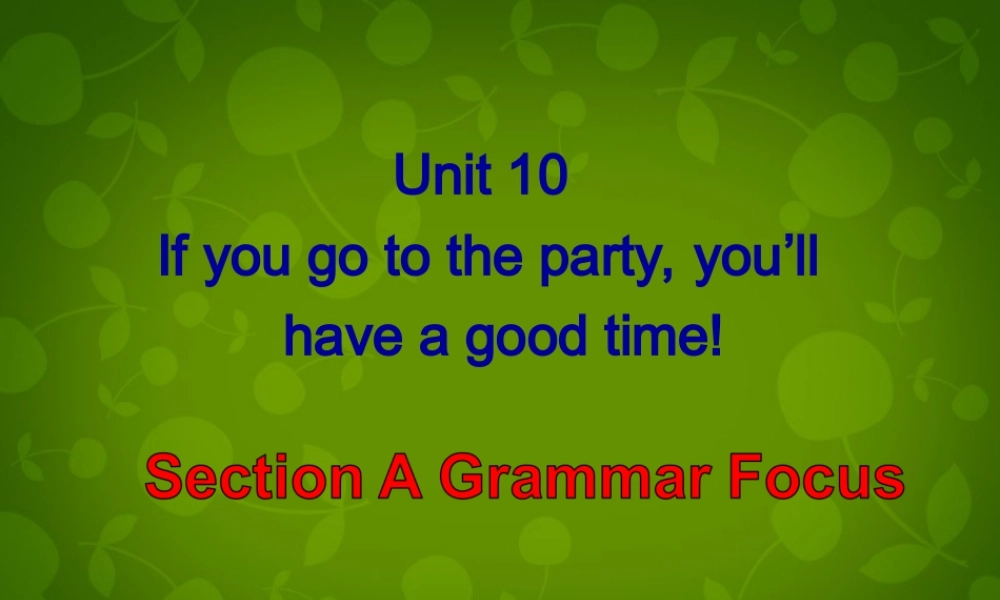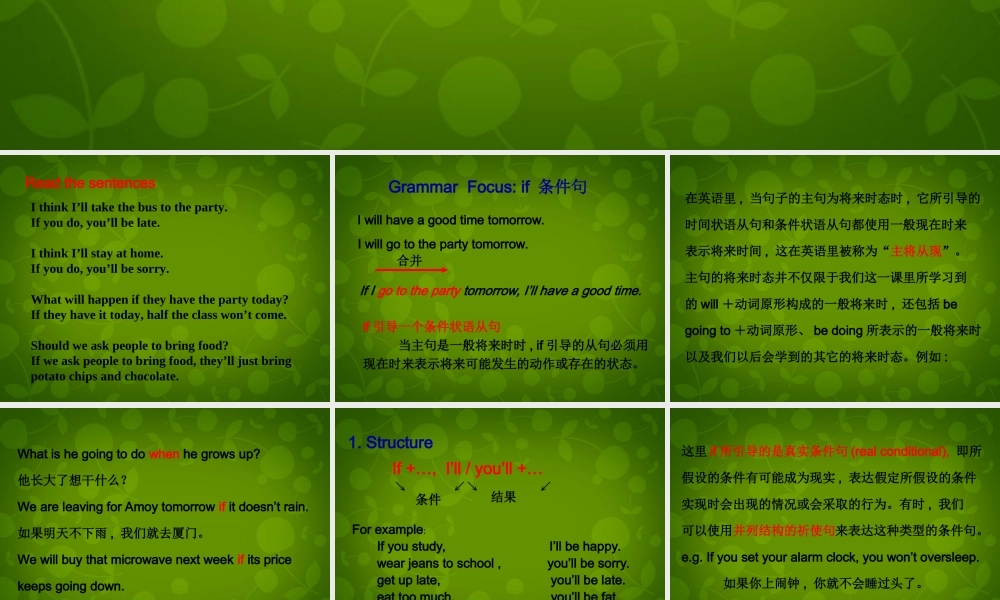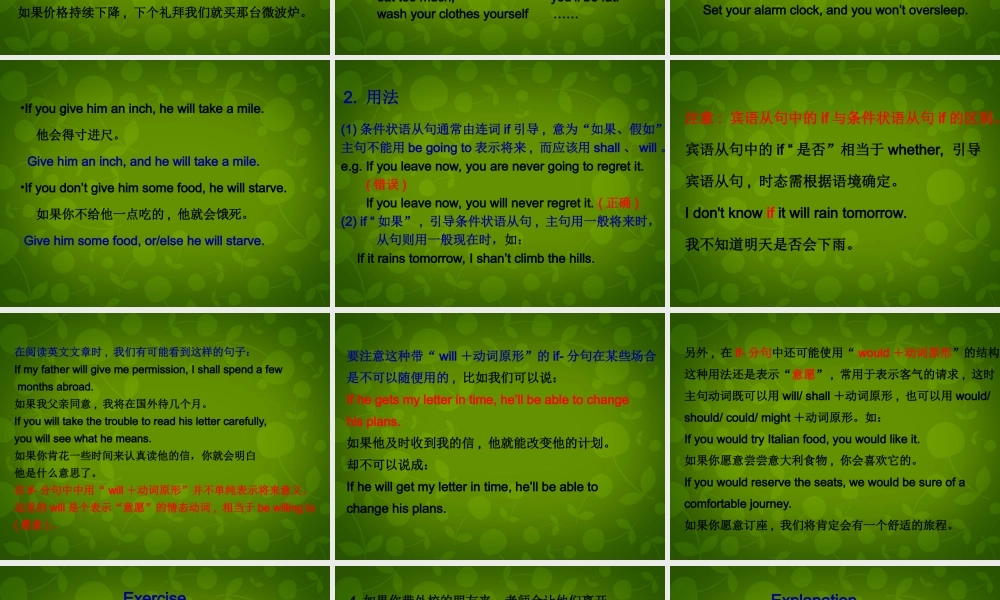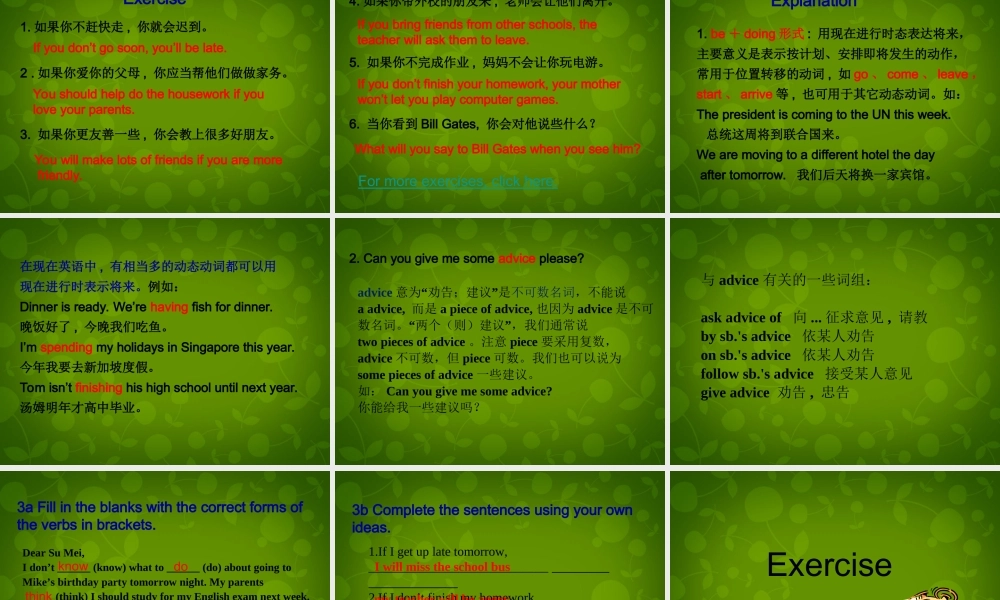Unit 10 If you go to the party, you’ll have a good time!I think I’ll take the bus to the party. If you do, you’ll be late.I think I’ll stay at home. If you do, you’ll be sorry.What will happen if they have the party today? If they have it today, half the class won’t come.Should we ask people to bring food? If we ask people to bring food, they’ll just bring potato chips and chocolate.Read the sentencesI will have a good time tomorrow.I will go to the party tomorrow.If I go to the party tomorrow, I’ll have a good time.合并if 引导一个条件状语从句 当主句是一般将来时时 , if 引导的从句必须用现在时来表示将来可能发生的动作或存在的状态。Grammar Focus: if 条件句在英语里 , 当句子的主句为将来时态时 , 它所引导的时间状语从句和条件状语从句都使用一般现在时来表示将来时间 , 这在英语里被称为“主将从现”。主句的将来时态并不仅限于我们这一课里所学习到的 will +动词原形构成的一般将来时 , 还包括 be going to +动词原形、 be doing 所表示的一般将来时以及我们以后会学到的其它的将来时态。例如 :What is he going to do when he grows up? 他长大了想干什么?We are leaving for Amoy tomorrow if it doesn’t rain. 如果明天不下雨 , 我们就去厦门。We will buy that microwave next week if its price keeps going down. 如果价格持续下降 , 下个礼拜我们就买那台微波炉。If +…, I’ll / you’ll +… ↘ ↙ ↘↙条件结果For example: If you study, I’ll be happy. wear jeans to school , you’ll be sorry. get up late, you’ll be late. eat too much, you’ll be fat. wash your clothes yourself …… 1. Structure这里 if 所引导的是真实条件句 (real conditional), 即所假设的条件有可能成为现实 , 表达假定所假设的条件实现时会出现的情况或会采取的行为。有时 , 我们可以使用并列结构的祈使句来表达这种类型的条件句。e.g. If you set your alarm clock, you won’t oversleep. 如果你上闹钟 , 你就不会睡过头了。 Set yo...




